Why 90s Movies Are Just Better (For Us Millennials)
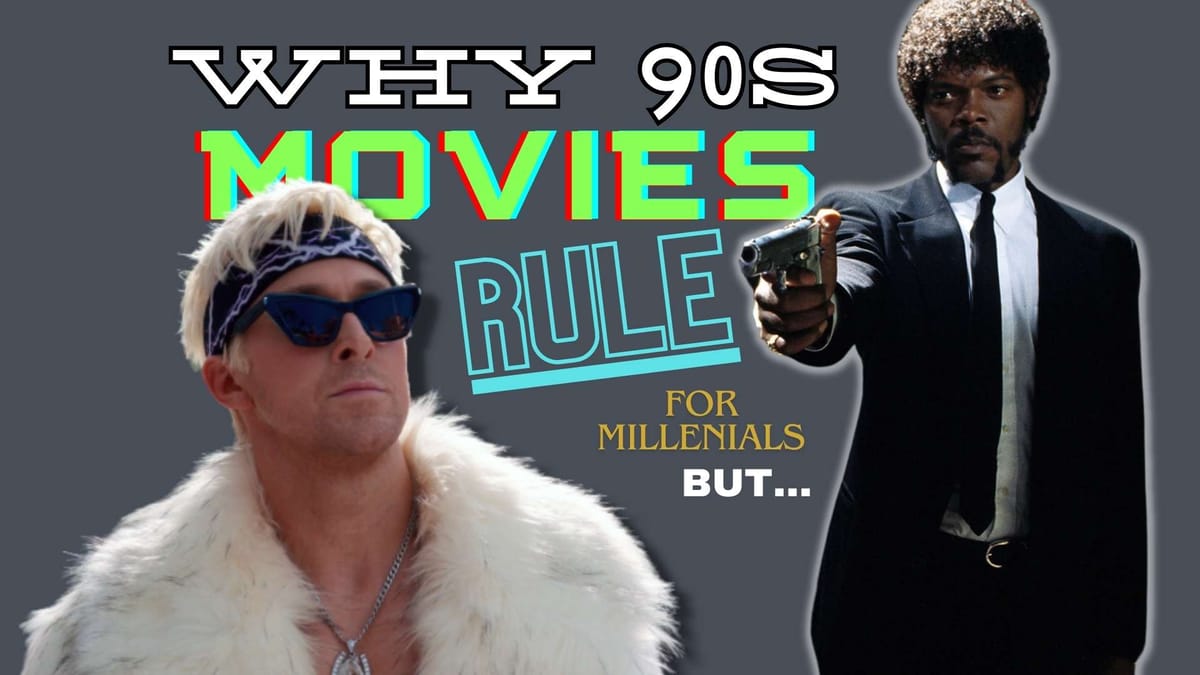
Like a comforting old sweater, the movies of our youth hold a special place in our hearts. As nostalgia washes over us like a warm wave, we view the classics of our coming-of-age years through rose-tinted glasses. For me, the 1990s represent a golden age of daring creativity and sparkling originality in Tinseltown.
Ah, the magical era of 90s cinema—how I long for the bold vision and brilliance of that bygone age of filmmaking compared to the derivative dreck of today! In the 90s, it felt like every other film was a groundbreaking masterpiece. Directors like Quentin Tarantino, Paul Thomas Anderson, and the Coen Brothers exploded onto the scene with their seminal works, Pulp Fiction, Boogie Nights, and Fargo. These auteurs gave us razor-sharp dialogue, experimental storytelling, and unforgettable visual panache.
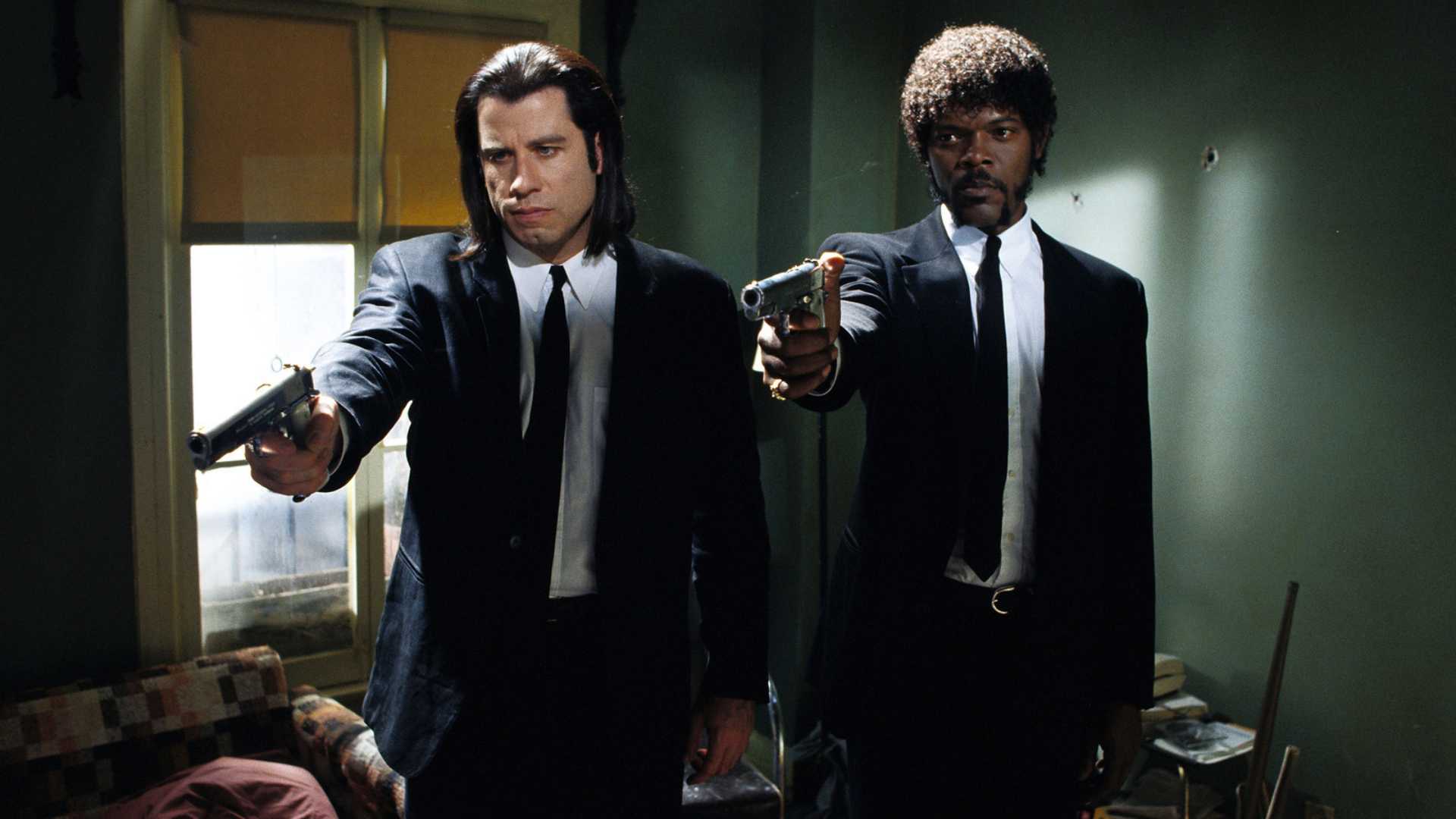

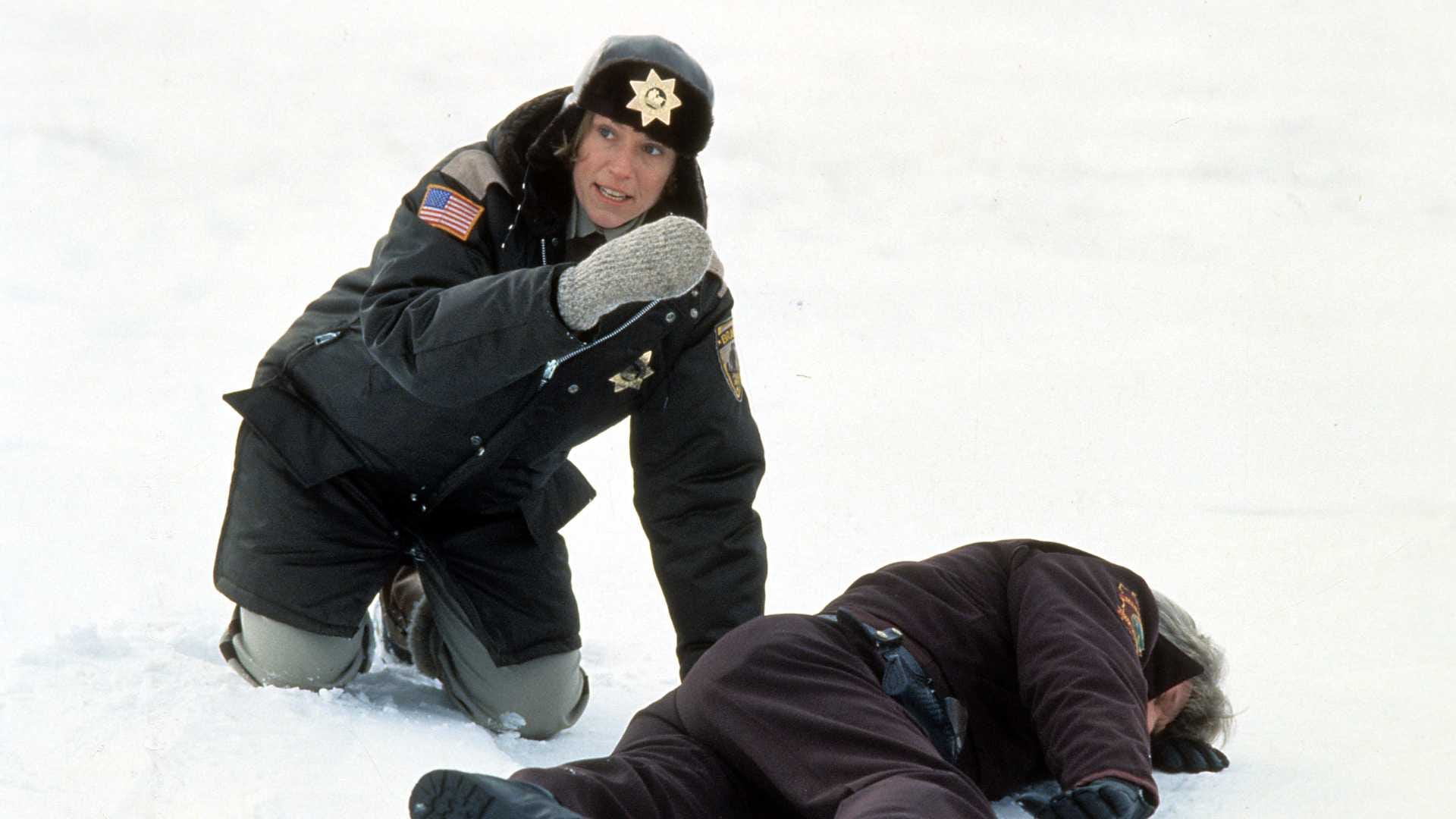

The writing and acting were just superb
And the writing itself—such wit and imagination flowed from the keyboards of those 90s scribes straight into our eager young minds! Even now, I recall how those profound philosophical ponderings in The Matrix enthralled my teenage self. And I'll always have a soft spot for the American Pie team's hilarious hysterics that had my friends and I howling in the theatre seats.

Nostalgically speaking, those screenplays remain as captivating now as they were 25 years ago. Of course, I'm aware my rose-tinted glasses may overlook a plot hole or clunky dialogue here and there. But I still believe today's scripts lack some of that free-wheeling creativity that so enthralled a generation.
And similarly, when it comes to acting, our nostalgic gaze sees only the remarkable heights of 90s performances rather than any awkward moments that may not have aged so gracefully. In my mind’s eye, I still see the absolute zenith of two fine thespians in Davis and Sarandon, not to mention Hanks cementing himself as a national treasure during our coming-of-age decade. Through the lens of nostalgia, Brad Pitt seems to be the only possible embodiment of Durden's anarchic charisma, but realistically, every era births its own share of prodigious talents.
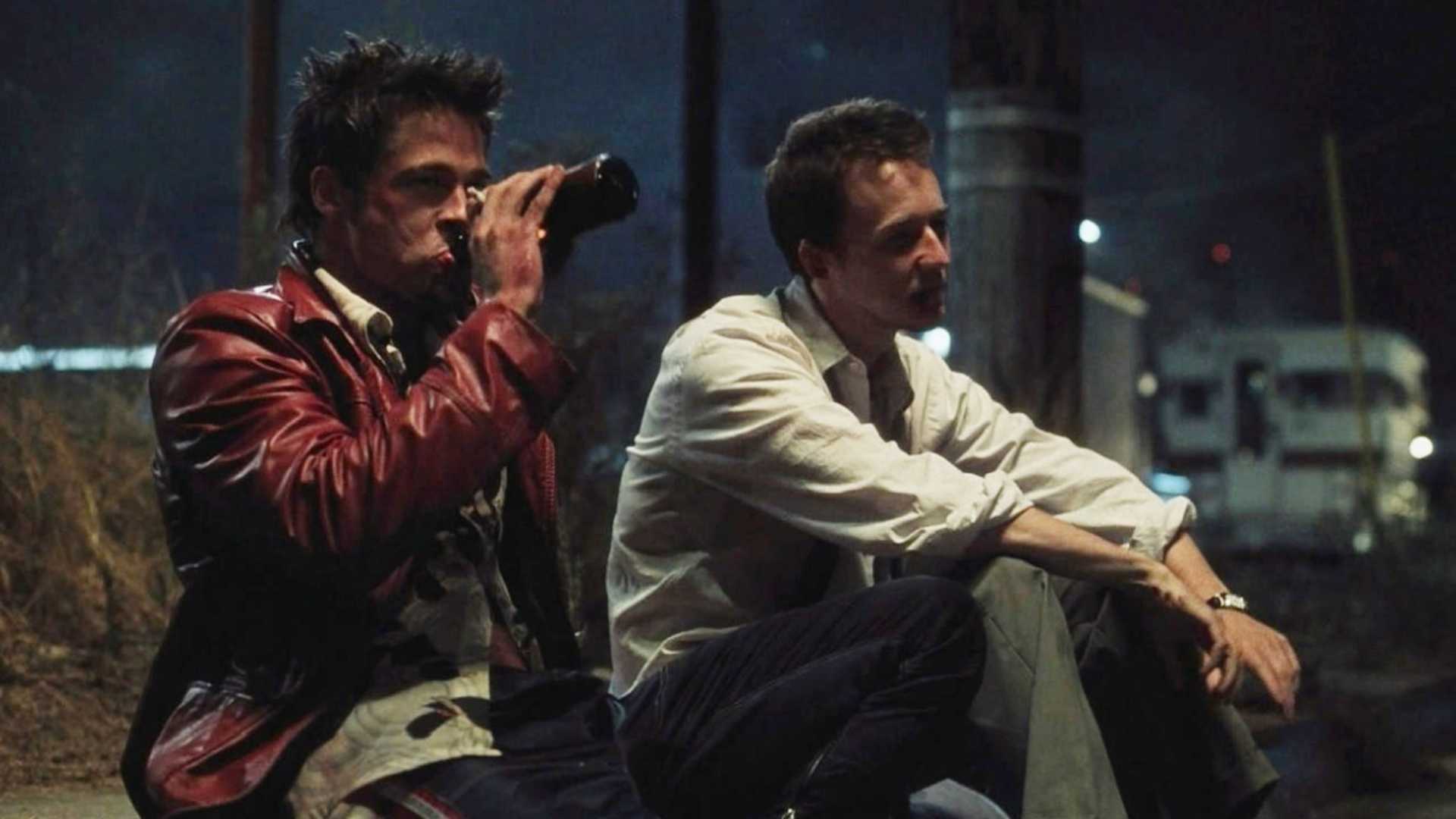
Blockbusters had heart and soul
When reminiscing on those giddy 1990s blockbusters witnessed in my wonder-filled youth, neither the occasional cringe-worthy special effect nor corny one-liners now spring to mind. Nostalgia instead reminds me solely of the emotional exhilaration and sheer entertainment conjured by those celluloid masters, Spielberg, Cameron, and co., at the peak of their powers.
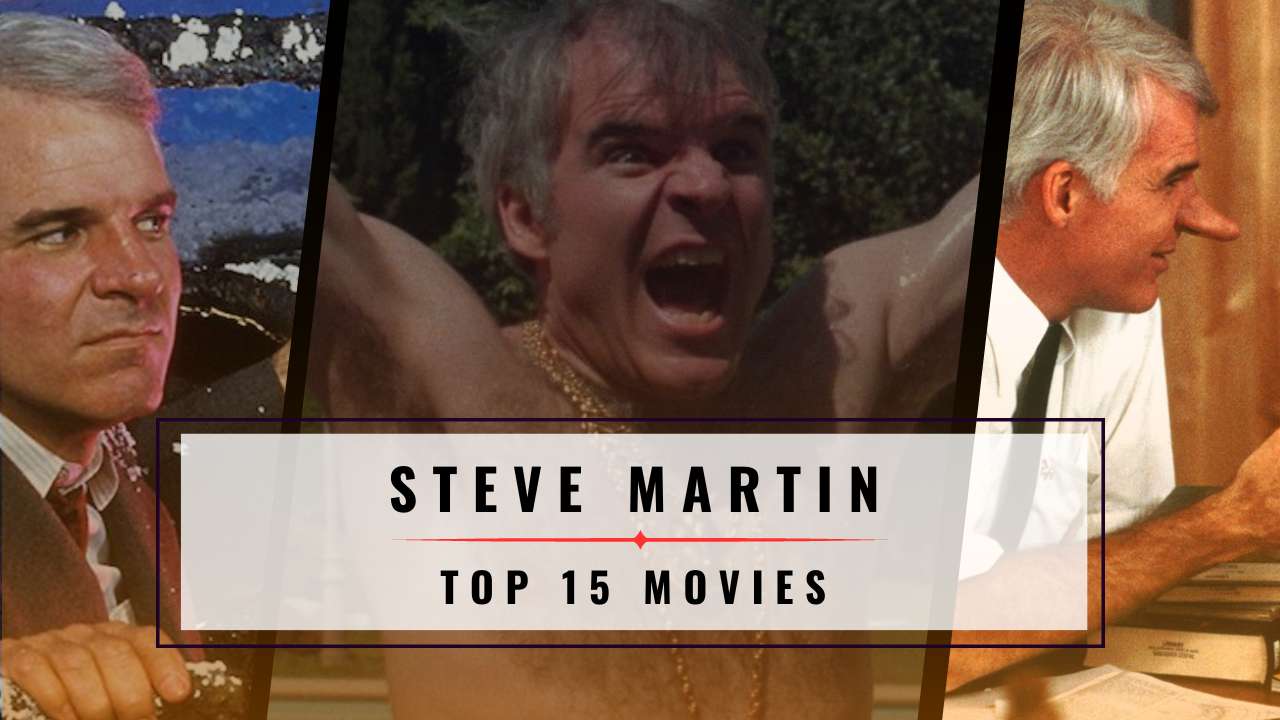
My inner teenager will forever cherish the easy comic charm of Martin, Stiller, Carrey, and Williams that lit up so many carefree weekends. Yet realistically, Williams one-liners or Carrey's slapstick likely provoke more muted chuckles from today's jaded audiences, but that kid inside me still eats it all up with a spoon when I revisit these treasured classics.
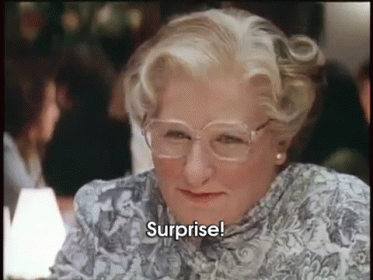
We'll always prefer films from our nostalgic years
As much as I may extol the merits of 90s filmmaking, if we're being fully objective, every era has produced both masterpieces and misfires. Our fondness for the movies of our youth is tied up with nostalgia—that sentimental longing for the familiar comforts of the past.
And through that lens of nostalgia, the films we grew up with take on an almost mythical status in our memories. We recall only the spectacular highs—the groundbreaking special effects, the endlessly quotable one-liners, and the sheer entertainment value—that captured our imagination. The failed experiments and outright turkeys tend to fade from memory.
"Nostalgia is a powerful thing. It makes us blind to flaws and sees only the good in the things we used to love."
- The Nostalgia Critic
The same will likely be true for generations raised on the Harry Potter films or Christopher Nolan's caped crusaders. In 25 years, today's youth may well look back misty-eyed on Avengers Endgame as the crowning glory of cinema while turning their noses up at whatever virtual reality or hologram extravaganzas entertain their own kids.


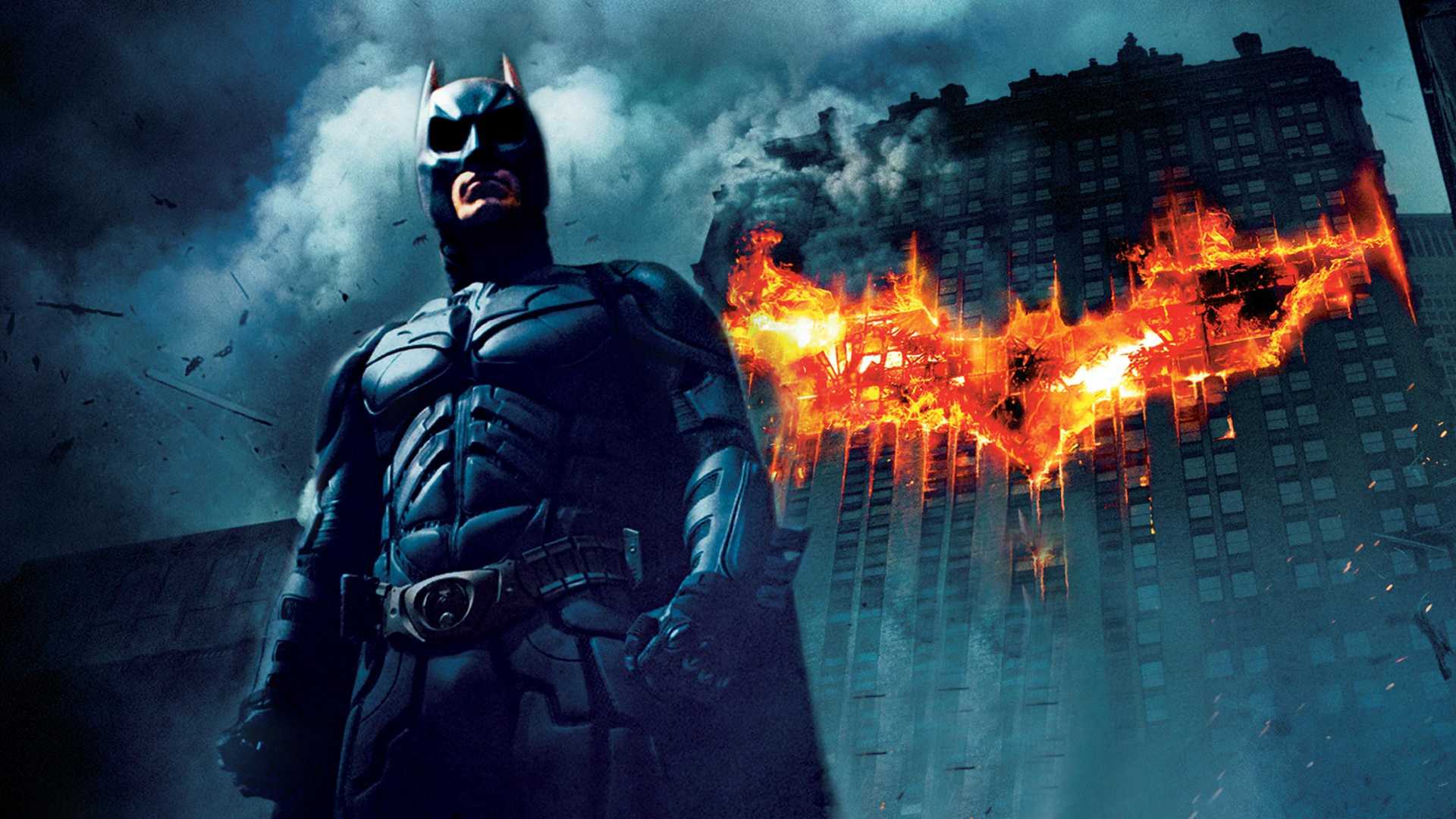

The classics of our era hold a special place in our hearts. But in fairness, we should judge each era's contributions with an open mind. For one day, the freshest films of today will also be the nostalgia-tinged classics of tomorrow.
Do we fail to recognise fresh innovation?
As an ageing millennial now solidly outside the 18-35 demographic sweet spot, I must confess that at times my nostalgic sentimentality renders me oblivious to pioneering advances right under my nose.
When today’s youth laud innovative TV like Euphoria or genre-bending films like Everything Everywhere All At Once, I struggle to appreciate narratives aimed at their generational experience rather than my 90s-molded preferences. The unconventional editing, abstract imagery, and surreal metaphors of today’s cutting-edge content sometimes come across to me as contrived or confusing rather than brilliant.

Yet I have no doubt that in 25 years, the teens of today will pine just as ardently for the return of Zendaya’s Rue or Michelle Yeoh’s laundry-verse as I yearn for Clarice Starling or Jerry Maguire’s mission statement. The icons burned into our memory by the movies of adolescence forever hold mythic status in our nostalgic pantheon.
Perhaps I should temper my demand for more films catering to my 90s sentimentality and acknowledge that for today’s youth, these bold new onscreen tapestries represent their era’s masterpieces. Their own nostalgic journey is just beginning.

Film as an agent of social change
Upon deeper reflection, I concede that my rosy nostalgic veneration for 90s cinema overlooks a vital transformational purpose many of today's films seek to serve. Modern movies actively aspire to shift culture by spotlighting inequality and championing diversity, acting as vessels driving real-world progress rather than merely escapist entertainment.
Where 90s classics dwelled more on comforting fantasies, current cinema mirrors society's growing desire for representation and inclusion across gender, race, orientation, and beliefs. Groundbreaking films like Black Panther, Barbie, CODA, and Turning Red give big screens over to marginalised groups to share stories that resonate powerfully with underserved audiences.




Equally, envelope-pushing directors use their lens to hold a mirror to societal deficiencies. Movies like Don’t Look Up, The Big Short, and Get Out offer searing satirical critiques of greed, denialism, and racial injustice, no longer content to simply humour us.
And audiences worldwide connect through cinema to express solidarity around causes like #MeToo, climate change, and rights. Whereas I might reminisce on 90s movies for sheer escapist thrills, today’s socially conscious generation recognises film’s power to spotlight injustice and galvanise collective action.
While I may yearn for the halcyon days of 1990s Hollywood, current cinema is fulfilling a far more vital role in society, and that merits my utmost respect.
Nostalgic escape is a wonderful luxury, but lasting positive change may prove a far more meaningful legacy.
The eternal cycle returns...
While seismic cultural and technological shifts make any era’s films a definitive product of their time, perhaps the cinema of tomorrow borrows flavours from the past.
Indeed, Tinseltown endlessly recycles itself as studios bank on nostalgia. Just in recent years, we’ve seen reboots of 90s fixtures like Jurassic Park, The Matrix, and in 2023, Hocus Pocus. So while the tools and social context transform, Hollywood often gravitates back towards familiar stories and characters that once captured the public’s imagination.

Equally, the innovators pushing cinematic frontiers today stand on the shoulders of pioneers from previous eras like the 1970s, which laid the gritty groundwork for films spotlighting harsh urban realities. So while the fresh ideas of each age reflect evolving attitudes, the threads tying them together run deep.
Perhaps the cinema of tomorrow will take renewed inspiration from the Maverick 90s directors I so adore while blending it with today’s focus on inclusion and social change. We may one day welcome a renaissance showcasing that daring originality and visual audacity... but deployed to spotlight the defining challenges of younger generations rather than my Gen X coming-of-age.
If global consciousness shifts back towards a desire for escapism over harsh realities, studios may yet redig the wells of 1990s stories. For now, we nostalgics must concede that today’s groundbreaking movies speak more profoundly to the present-day human experience, but their time too shall pass. Nothing endures but change—until the cycle brings back the familiar once more.
So while the 1990s remain etched fondly in my memory as a halcyon era for dazzling creativity, I must acknowledge modern cinema also has vital roles to play as both an agent of social change and a looking glass reflecting society's evolving attitudes.
Perhaps we judge most harshly that which speaks to the present day rather than nostalgia's gilded past. But in time, the pioneers of today will also retire into hallowed memory. Though I may long for the irreverent movies of my youth, the landscape continues shifting under our feet.
So to end, I leave you with this:
“Our dilemma is that we hate change and love it at the same time; what we really want is for things to remain the same but get better.” -Sydney J. Harris"Tweet


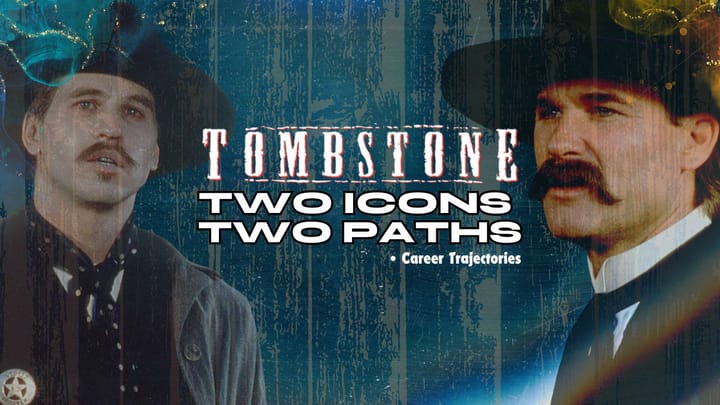
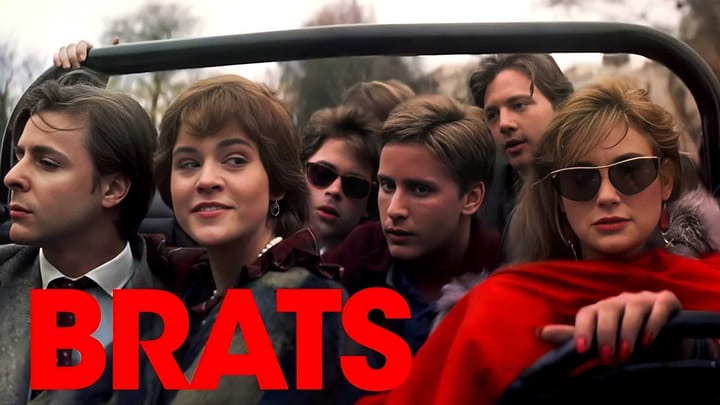
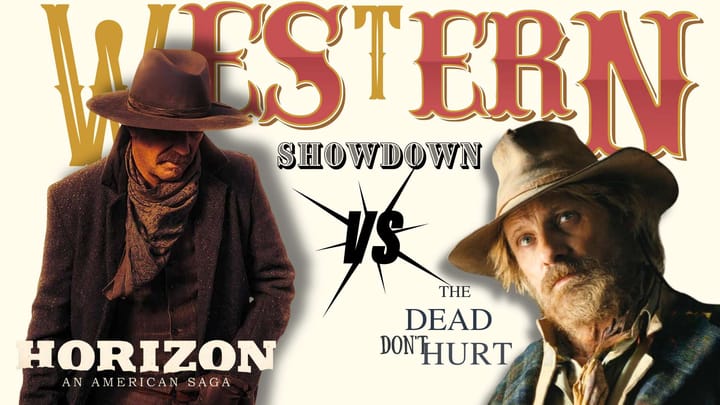
Comments ()